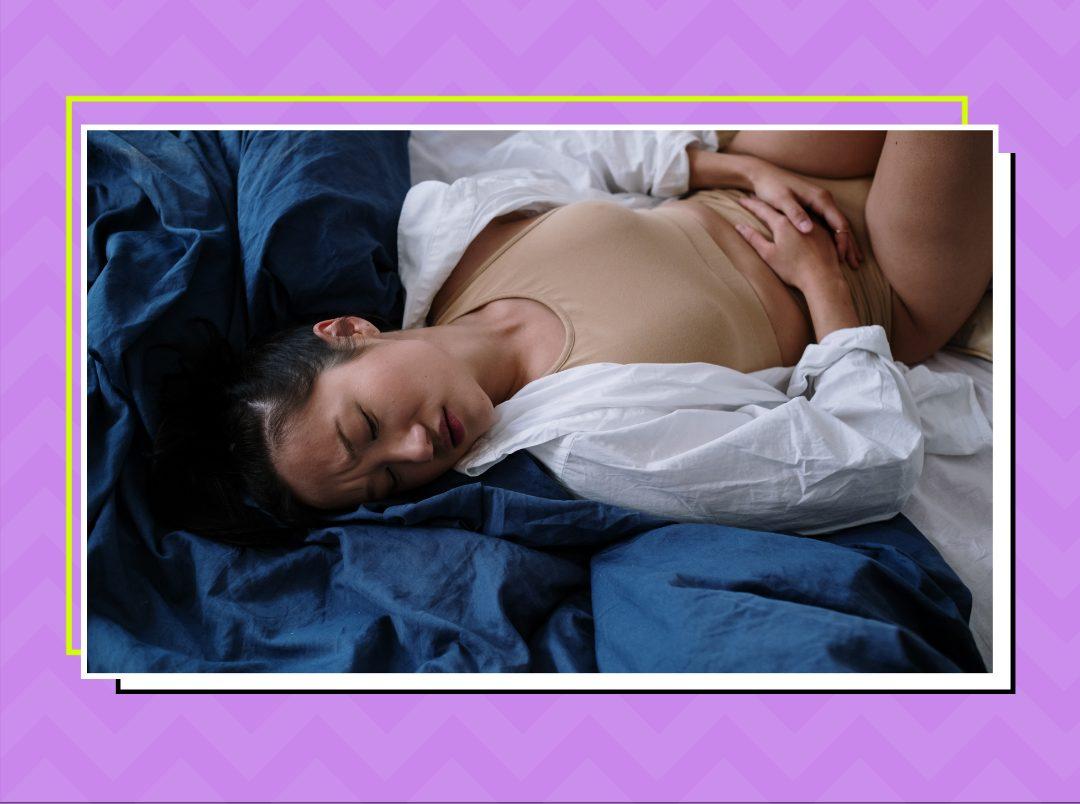Menstrual pain is, hands down, the most vexatious side-effect of our monthly cycle. It may knock you down seven-ten days before your shark week begins and leave you alone only when Aunt Flo takes the exit door. And hell! The byproduct of those uterine contractions really does make getting out of bed a mammoth task while it lasts. But you know what’s even more frustrating than period cramps? Cramps without periods.
According to experts, the aches and pains in your pelvic area might be your body’s way of indicating something else altogether—perhaps, a serious health condition. We got in touch with Dr Sweta Patel, Senior IVF Specialist, Crysta IVF Hospital, Surat to delve deeper into the matter. Here are five possible reasons why period-like cramps might plague you even when you’re not menstruating and what to do about it:
Early Pregnancy

Abdominal cramps can be one of the early signs of pregnancy. Chances are that you may not be aware of it during this phase and keep wondering why you’re in pain. “The embryo implants in the womb sometime between 6 and 12 days after conception. This can cause mild cramps in the abdomen,” says Dr Sweta. If you’re already pregnant and experiencing these cramps, then it could either be due to your expanding uterus or an ectopic pregnancy. “An ectopic pregnancy occurs when a fertilized egg implants and grows outside the main cavity of the uterus. It can lead to severe abdominal pain,” she adds.
What To Do?
First thing’s first–take a pregnancy test at home. You can count on the PregRx Pregnancy Test Kit from Sirona’s PeeBuddy range for quick, mess-free, and accurate results.
If it indicates pregnancy, visit your doctor to ensure that there are no complications. “Pregnancy-related cramps should not be ignored. Only a certified health professional can help you figure out the root cause and prescribe suitable treatment,” says Dr Sweta.
Urinary Tract Infections (UTI)

UTIs are one of the most common reasons for abdominal cramps. They can be caused by poor intimate hygiene practices or the transfer of anal bacteria to the vagina. “The bacteria causing the infection can also affect your abdomen, specifically your lower abdomen. So you may experience a lot of pressure, pain, and bloating,” explains Dr Sweta.
What To Do
While mild UTIs like cystitis can subside on their own, persistent abdominal pain needs medical assistance. Dr Sweta suggests drinking plenty of fluids to flush the infection out and relieve pain. Also, keep your intimate area clean to prevent the bacteria from your genitals from entering the vagina. You can trust Sirona’s Refreshing Intimate Wash for the job. Made with natural ingredients like Tasmanian pepper fruit, it cleanses the genitals gently and leaves your nether regions squeaky clean.
As for a more severe UTI, your doctor’s going to prescribe antibiotics to keep the infection from spreading further.
Pelvic Inflammatory Disease (PID)

This bacterial infection in reproductive organs is usually caused by bacterial transfer during sexual contact. “It can lead to inflammation of ovaries, uterus, and the fallopian tubes. As a result, you may experience period-like cramps in your pelvic region,” says Dr Sweta.
What To Do
You can’t ignore this one either. “You need to get a full-fledged sexual health screening done,” suggests Dr Sweta. “This can help figure out the intensity of the problem and determine the right course of treatment,” she adds.
Food Allergies & Poisoning

You know you ate something wrong when those abdominal cramps are accompanied by diarrhoea, bloating, and gas. “Stomach ache is the most common symptom of food allergies like lactose intolerance (a condition in which you cannot digest the natural sugar found in dairy and milk products,” Dr Sweta points out. “They can also be caused due to an allergic reaction to other foods that don’t suit you or simply due to consumption of contaminated food,” she adds.
What To Do
The easiest way to combat this issue is to stick to simple, home-cooked foods like khichdi. OTC pills like digene can also help if your case is that of a minor gastric or acidity problem. “Don’t forget to stay hydrated and increase your fluid intake to make up for all the water loss in this case,” says Dr Sweta. “If the cramps are severe, get in touch with your doctor immediately,” she warns.
Inflammatory Bowel Disease (IBD)

An umbrella term to describe disorders involving chronic inflammation of your digestive tract, it is usually caused by ulcers in the large intestine. “Apart from a burning sensation in the abdomen, it can also cause severe cramps and stomach ache. “The pain is usually accompanied by bloody stool, extreme fatigue, nausea, unexplained weight loss, and reduced appetite,” says Dr Sweta.
What To Do
“This long term condition requires long term treatment by a suitable health professional. However, one must stay hydrated, steer clear of alcohol and cigarettes, and eat light, home-cooked meals,” says Dr Sweta.
Folks, you’ve got to pay close attention to the symptoms accompanying those period-like cramps. If you notice something fishy, schedule an appointment with your doc right away. Remember, health is wealth.
Featured Image: Pexels





